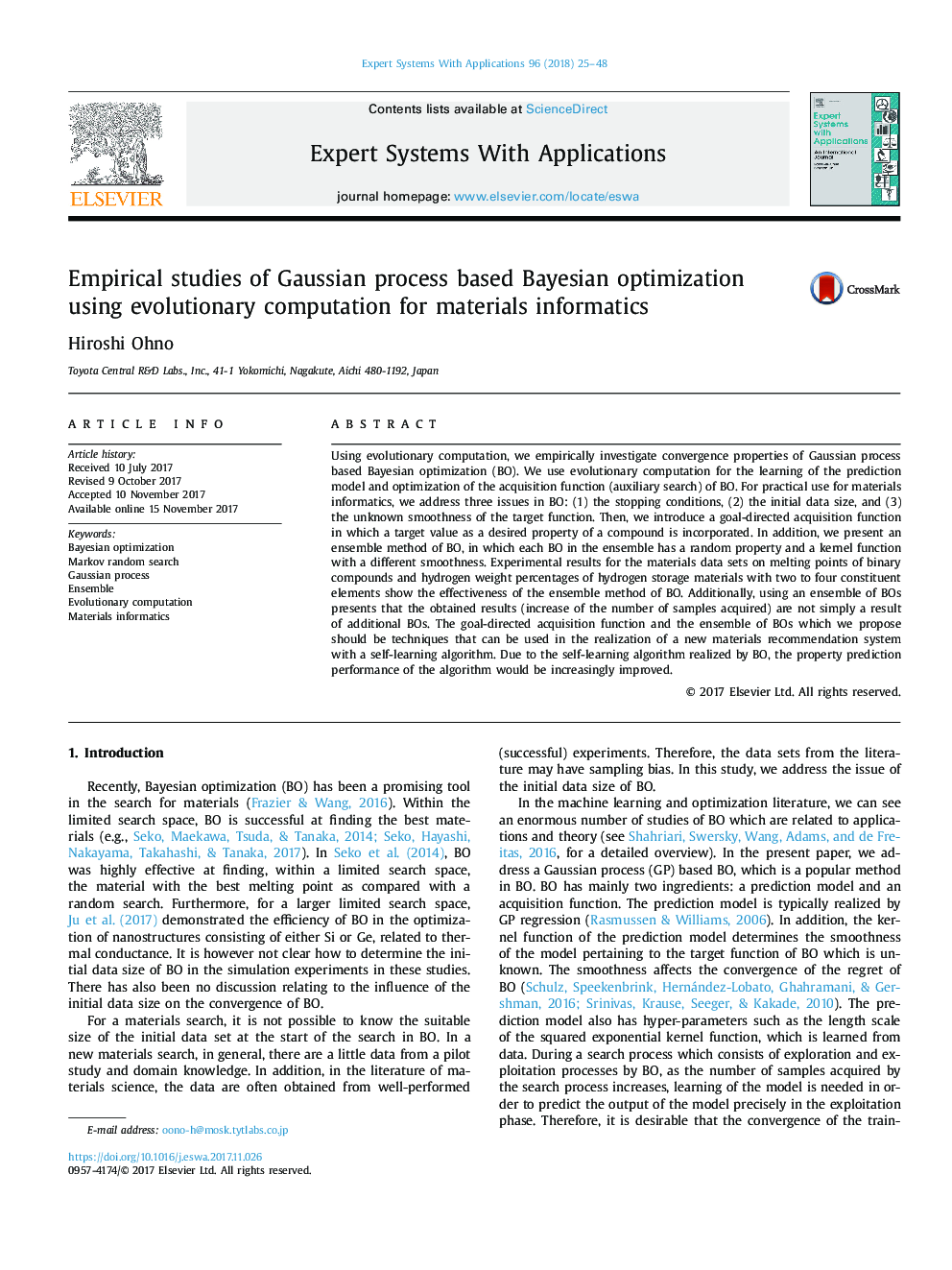| Article ID | Journal | Published Year | Pages | File Type |
|---|---|---|---|---|
| 6855199 | Expert Systems with Applications | 2018 | 24 Pages |
Abstract
Using evolutionary computation, we empirically investigate convergence properties of Gaussian process based Bayesian optimization (BO). We use evolutionary computation for the learning of the prediction model and optimization of the acquisition function (auxiliary search) of BO. For practical use for materials informatics, we address three issues in BO: (1) the stopping conditions, (2) the initial data size, and (3) the unknown smoothness of the target function. Then, we introduce a goal-directed acquisition function in which a target value as a desired property of a compound is incorporated. In addition, we present an ensemble method of BO, in which each BO in the ensemble has a random property and a kernel function with a different smoothness. Experimental results for the materials data sets on melting points of binary compounds and hydrogen weight percentages of hydrogen storage materials with two to four constituent elements show the effectiveness of the ensemble method of BO. Additionally, using an ensemble of BOs presents that the obtained results (increase of the number of samples acquired) are not simply a result of additional BOs. The goal-directed acquisition function and the ensemble of BOs which we propose should be techniques that can be used in the realization of a new materials recommendation system with a self-learning algorithm. Due to the self-learning algorithm realized by BO, the property prediction performance of the algorithm would be increasingly improved.
Related Topics
Physical Sciences and Engineering
Computer Science
Artificial Intelligence
Authors
Hiroshi Ohno,
